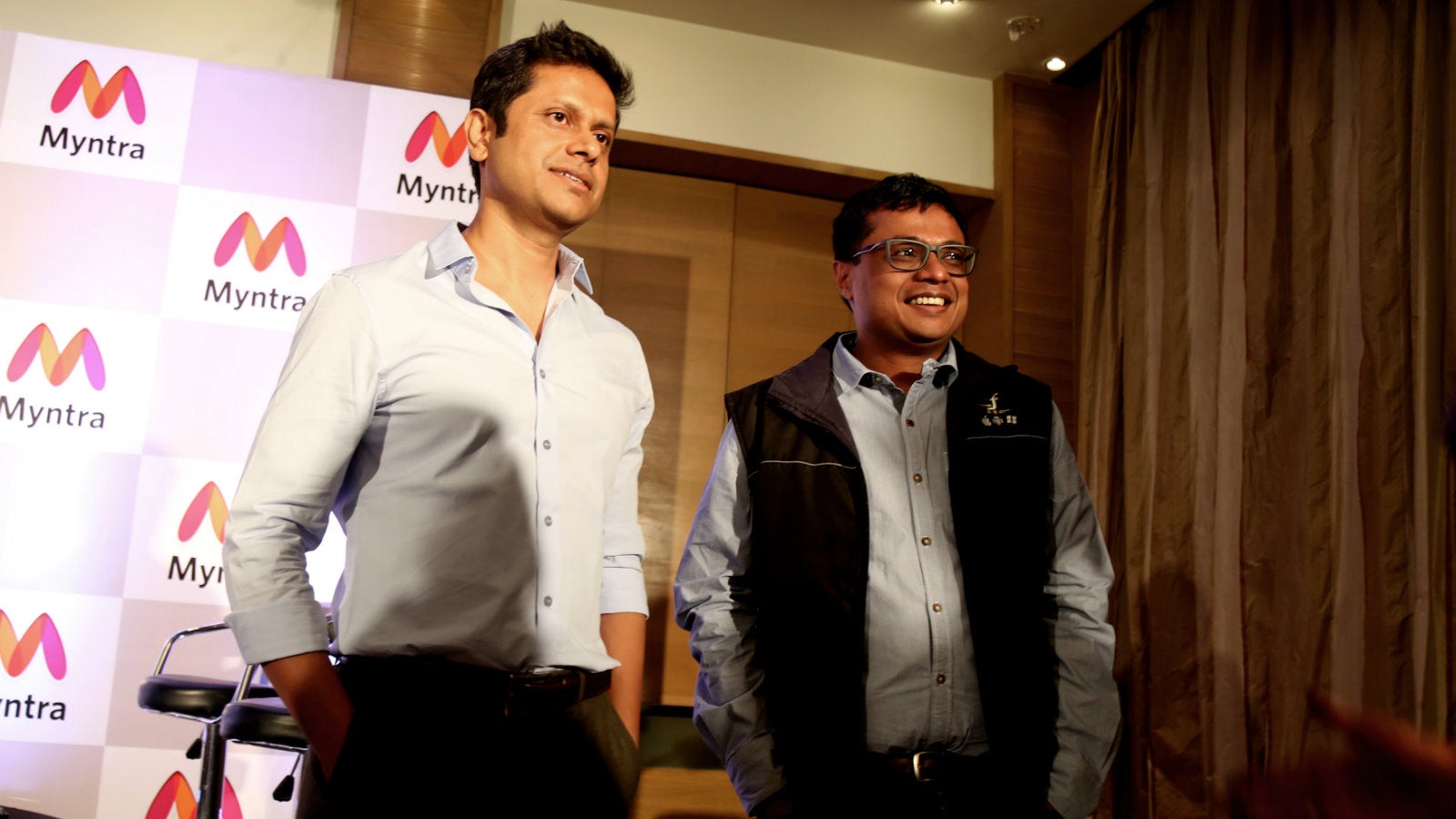The seven kinds of entrepreneurs you can find in India—or soon will
Leaving a lucrative job to become an entrepreneur was looked down upon in India not so long ago. First-generation entrepreneurs in the country often tell stories of how their parents were upset and their friends mocked them when they decided to skip campus placements to start their own ventures.


Leaving a lucrative job to become an entrepreneur was looked down upon in India not so long ago. First-generation entrepreneurs in the country often tell stories of how their parents were upset and their friends mocked them when they decided to skip campus placements to start their own ventures.
But in recent years—with investors lining up to back startups and valuations sometimes running into billions of dollars—being an entrepreneur has not only become acceptable, but also sexy.
India, home to the world’s fastest growing startup ecosystem, now boasts the third highest number of entrepreneurs globally. And investors and media have created several categories to classify them. Many of these—just like startup business ideas in India—are copied from Silicon Valley in the US.
These classifications are at times based on formal criteria, such as the valuation and nature of the entrepreneur’s venture. At other times, these are just informal titles that indicate an entrepreneur’s nature or style of working.
Here are the founder categories that have emerged in India already, or soon might:
Serial entrepreneur
These are individuals who attempt entrepreneurship over and over. TechCrunch mockingly describes serial entrepreneurs as those “who had two ideas, both of which failed.”
Elon Musk, CEO of automotive and energy storage company Tesla Motors, is one of the best examples of serial entrepreneurship. Musk was a co-founder of electronics payments company PayPal before co-founding Tesla.
As the ecosystem matures, India is increasingly seeing the emergence of serial entrepreneurs. One example is Raveen Sastry, co-founder of online fashion retailer Myntra and Hoopos, an e-commerce site for baby products. Most recently, he co-founded NudgeSpot, a platform that enables communication between businesses and customers.
Three commas entrepreneurs
“Three commas” implies $1 billion ($1,000,000,000). Entrepreneurs whose startups exceed $1 billion (Rs6,503 crore) in valuation are often referred to as “three comma entrepreneurs.” With the number of unicorns—startups that are valued at over $1 billion—increasing impressively in India over the last year, there are several entrepreneurs who have entered this elite club.
Some of the well-known “three comma entrepreneurs” in India are Flipkart co-founders Sachin Bansal and Binny Bansal; Snapdeal co-founders Kunal Bahl and Rohit Bansal; Paytm founder Vijay Shekhar Sharma; and Ola co-founders Bhavish Aggarwal and Ankit Bhati.
Emerging entrepreneur
The category typically includes new entrepreneurs who come across as promising and are expected to be part of the “three commas” club one day. The investor community informally uses the “emerging entrepreneurs” title for those who are working on an idea that appears to have huge potential but is not yet ready to get funded. Among journalists, “emerging entrepreneurs” are those who have not yet received an institutional funding round.
“Emerging entrepreneur” is also one of the most common categories at startup awards.
“I’m Steve Jobs” entrepreneurs
This informal classification refers to entrepreneurs who start believing that their business is doing well because of their personal greatness. The name comes from Apple co-founder Steve Jobs, who was notorious for his stubbornness and arrogance.
Investors like to stay away from these entrepreneurs as they believe that such a mindset leads to a startup’s doom. Startups led by such founders often stop innovating as the leader refuses to take advice from investors or friends.
Social entrepreneur
This is the category of entrepreneurs who help solve social problems. Social entrepreneurship is on a rise in India, with several individuals working to create technology-enabled solutions for problems like water management, waste disposal, education, and job creation.
A recent example of social entrepreneurship is The/Nudge Foundation, which was founded by Atul Satija, a former employee of mobile advertising startup InMobi. The/Nudge Foundation is working to alleviate poverty through skills training and other initiatives.
Visionary or thought leader
These are typically entrepreneurs whose startups have matured and scaled, and they now spend a lot of their time mentoring younger entrepreneurs. These individuals are highly respected for what they created at their own startups.
These visionaries may also act as angel investors and make personal investments in ideas they like. Flipkart’s Bansals, and Snapdeal’s Bahl and Bansal fall into this category.
One dollar billionaires
One dollar billionaires are those who draw an annual salary of just $1 (Rs65). Such entrepreneurs can be found in Silicon Valley, but they have yet to emerge in India. Facebook co-founder Mark Zuckerberg is the most famous example of entrepreneurs who belong to this category.
A common argument is that entrepreneurs opt for the token salary only because it helps them save on taxes. Also, when you have already made billions and hold some more in the form stocks, why would you care for a salary?